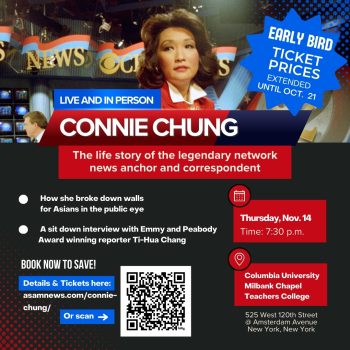by Thomas Lee
It’s perhaps fitting that Taylor Swift and Caitlin Clark should dominate the same week last week.
Swift, the world’s most popular pop singer, just released her latest studio album. Clark, the world’s most popular female basketball player, was drafted first overall by the Indiana Fever of the WNBA.
Whereas Swift’s album will likely significantly boost her already estimated $1.1 billion net worth, Clark will earn $76,535 in base salary.
Fans and pundits were understandably upset that Clark, the most talented, accomplished player of her generation, would make such a relatively paltry salary, thanks to the labor contract the players union negotiated with the league. (For the record, I make more than Clark and no one finds this more amusing than me.)
But of course, there’s the usual right-wing crowd, wrapped in all of its self-righteous antipathy towards anything that smells of wokeness, that Clark’s salary is rooted in hard, cold economics. The NBA generates over $10 billion a year compared to $200 million for the WNBA. Case closed, right? Math is math. Numbers don’t lie. 2+2 always equals 4.
Once again, however, the situation is not as simple as it appears. Case in point: I was reading people debate Clark’s salary on LinkedIn. And one particular person felt she had a smoking gun. Compensation, she argued, is completely objective. Exhibit A: Swift and Beyonce are the two top-grossing music acts in the world.
“And that they are female had nothing to do with it,” she triumphantly declared.
Really? Gender had nothing to do with their success? Not even a teensy, weensy, itty bitty bit?
I’m not a survey expert but I’m willing to bet my Caitlin Clark-superior salary that the vast majority of Swifties and the Beehive are, in fact, women. And I’m also willing to wager Swift and Beyonce’s songwriting prowess, which often focus on both female empowerment and vulnerability, is why they are so popular with women in the first place.
My point is that valuation or calculating professional worth is hardly an immutable science. Humans make these judgments, and humans are subjected to their own experiences and biases. The reason why anything has any value is because people assign it value.
Of course, there are guidelines. There’s the classic principle of supply and demand. But then again, there’s a huge demand for teachers and nurses in society but you don’t see such professions pulling down seven-figure signing bonuses.
There’s the prospect of future growth, which is why venture capitalists throw gobs of money at high-tech startups. Once again, predicting the future is a highly subjective, fraught exercise. Investors once thought Theranos, the healthcare startup founded by Elizabeth Holmes, was worth $10 billion. Today, Theranos doesn’t exist, and Holmes is serving an 11-year sentence for fraud.
And lastly, which is my personal favorite, is experience. As a columnist at the San Francisco Chronicle, I earned far less than my peers, who have been working there for decades. But all of my peers were white. How many people of color did the Chronicle hire in the 20th century as columnists? Or for any position? (Hint: not a lot).
Back to Clark’s situation. The WNBA was founded in 1996, 50 years after the NBA. So the NBA commanded a 50-year head start in convincing a society already steeped in sexism and misogyny that men’s basketball was an exciting, bankable sport. (The NCAA didn’t officially recognize women’s basketball until 1982.)
In short, issues like pay and valuation are rarely simple exercises in math and economics. In the United States, you must always take into account the impact of historical bigotry, which has suppressed the earnings power and potential of marginalized communities. We did not all start the race at the same starting line.
Perhaps Caitlin Clark and those like her will continue to boost the value of the WNBA, the same way the rivalry between Larry Bird and Magic Johnson rescued the NBA from irrelevancy in the 1980s.
Because basketball is not some black box algorithm. Basketball is about players. And Caitlin Clark is one hell of a player.
AsAmNews is published by the non-profit, Asian American Media Inc.
We are supported through donations and such charitable organizations as the Robert Wood Johnson Foundation. All donations are tax deductible and can be made here.
Please purchase your tickets to our fundraiser Up Close with Connie Chung, America’s first Asian American to anchor a nightly network newscast. For a limited time, you can get 10% off tickets. The in-depth conversation with Connie will be held November 14 at 7:30 at Columbia University’s Milbank Chapel in the Teacher’s College. All proceeds benefit AsAmNews.




Is Caitlin Clark of Asian descent?